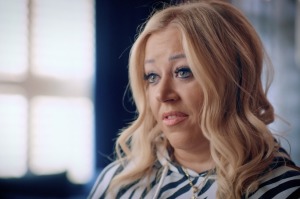Internet preachers rise as more worshipers migrate online

With more than 800,000 followers on Facebook, Chicago-based internet preacher and U.S. Army veteran Marcus Rogers has an audience on social media that's much greater than popular established churches like Rick Warren’s Saddleback Church, and is just about 300,000 shy of Joel Osteen’s Texas-based Lakewood Church’s 1.1 million followers.
“I am just a nobody trying to tell everybody about somebody who can save anybody! His name is Jesus,” Rogers, who turns 33 next month, boldly declares in the introduction to his page, which you must follow in order to get the latest updates.
With one click, his latest words of wisdom for Christian living are delivered in written posts and videos, which often rack up millions of views.
“People choose to follow people who are portraying the version of Christianity that they are comfortable with," he warned in a veiled shot perhaps about the growing and diverse industry of internet preachers and online ministries. "Everybody claiming to be a Christian isn't a Christian. Everyone claiming to have a word [from] God doesn't really have one. It's dangerous to just follow anybody claiming to be a Christian."
In recent years, various social platforms and other online technology amplified the voices of a variety of controversial internet preachers, ranging from more conservative ones like Rogers to the profane like “The Cussing Pastor,” Thaddeus Matthews. And as the population of the unchurched continues to grow, some church experts say their data reflect a growing engagement among the faithful with ministries online, with some even choosing to fellowship exclusively on the internet.
Lucinda Rojas Ross, central team leader of communications at the Craig Groeschel-led Life.Church, which spans 32 campuses in 10 states, says since starting their Church Online platform more than 10 years ago, engagement has grown exponentially.
“Our decision to create Church Online in April 2006 was driven out of our heart to reach people where they are. At Life.Church, we believe God has called us to use the technology available to us today to spread the Gospel to as many people as we can. There are more than 7 billion people on this Earth, and as long as there is one hurting person who doesn’t know Christ, we know our job isn’t done,” Ross shared with The Christian Post in a recent statement.
“Life.Church Online has allowed us to reach people who likely would have never walked through the doors of a church building. Beyond what we ever could have hoped or imagined, lives are being transformed around the globe. And we continue to see that number increase over time. So far this year on average, we’re reaching more than 500,000 people each week through Church Online, which includes live.life.church, Facebook, YouTube and Twitch,” she added.
She explained that Life.Church’s online community is made up of different types of people, including those who: are outside the physical reach of the church, prefer to explore their interest in spirituality in an online context, people who are a part of their church but are looking for another option to worship together because they are traveling or displaced, and people who prefer to experience much of their community in an online context.
“Though community and fellowship looks different in an online environment, we’ve found that many people are more open and feel more comfortable sharing details that they might hesitate to share in face-to-face conversations,” she said.
“We don’t expect Church Online to be the same thing for each person. For some, online ministry is a supplement to help them stay connected to their church when they can’t attend in person for various reasons. For others, it’s where they find Christ. Some individuals see it as their mission field. For some new believers, it can serve as a front door of sorts which eventually helps them get connected to a local church. And for others, it’s a full-fledged church home,” she explained.
A calling to the internet
Rogers says his messages resonate with his followers because, like their de facto spiritual leader, many have struggled to find their place in traditional churches.
“I’ve pretty much been in church my whole life,” he told CP. “My mother was a German woman, single woman, [with] four mixed kids. So everywhere we kind of went, we were kind of always the outsiders. In black churches they looked at us kind of funny, in white churches, she wasn’t married, a single mom.”
Without his father and the outsider status of his family, Rogers struggled to find his niche.
“I didn’t have people that were raised up in the church as friends that I could depend on. The Bible says there is safety in a multitude of counseling. So I kind of felt like I was just in a position where I had to learn everything the hard way," he said. "Marriage, relationships, I didn’t know anything about women or anything.
"I was deployed to Iraq, deployed to Afghanistan, and went through just so much mess in my life. It was so bad at one point I wanted to kill myself because I was just like, my life is just not working and I have nobody I could talk to. I can’t just call the pastor. I can’t just call my dad."
Desperate for direction and not ready to die, Rogers, who is a father of five children, said he began calling on the Lord for help.
When the Lord began responding several years ago while he was on deployment in South Korea, he said, his life began to change.
“Instead of trying to kill myself, what I would do, I would just fall on my faith and cry out to the Lord just for a word or something to keep me going, especially when I was in South Korea. And then the Lord just began to speak to me, you know. And He would download stuff to me and I would begin to open the Bible and He would give me revelations, and I was so desperate for it,” he said.
Inspired, Rogers soon decided that he would start publicly sharing some of what God was revealing to him.
“I realized there are people out there like me. They are outsiders. They might not have their dad, a pastor in their life that they can just call because they are not part of the in-clique or the in-crowd,” he said. “So I was like, I’m going to share what God has given me to keep me going, with everybody else. And I’m going to share the raw truth, whether it’s about my divorce or what I was going through. I’m just going to be vulnerable with people and be real.”
He quietly began posting his video messages on social media when about five years ago, in the fall of 2014, one of them billed “I Will Drown Myself” went viral.
“Right before I left for Korea the Lord spoke something to me and you know, different Christians don’t really agree with this, but I was leaving my military base and I felt the Lord leading me to go to my office, and I went to my office and I saw this trash can there and I felt led to just fill it up with water.
“Immediately I started having these thoughts that people are going to think I’m crazy, whatever … I felt led to put my head in the trash can and started recording whatever came to my mind and that was my first video,” he said.
“That took off and from there I kept making videos with the intent to just help people, motivate people, encourage people. And I didn’t see anybody else doing that at the time.”
Rogers had no plans to become famous.
“I just wanted to help other people that I knew were just out there like me,” he said.
The draw
The ministry is now so popular and lucrative, Rogers left the Army last fall to commit to his ministry full time.
Asked why he thinks his ministry became so popular, Rogers said his decision to be open and honest about his walk with Christ is what resonates with many of his followers.
“People are tired of, and this is not all churches, but a lot of churches just fake it. They want to look like they’ve got it all together, they’re not struggling, they’re holier than thou, they never have any carnal thoughts or anything like that, and so a lot of people are tired of that, you know,” he said.
“When I meet people face-to-face, that’s the number one thing they always say. Because I was vulnerable, they were able to connect with me, the transparency. It was more authentic to them and then when they look at me they feel like, well, if he can make it, then I can make it.”
Internet church?
Although he is aware that some of his followers have made him their unofficial pastor, Rogers said he still encourages them to find local church homes. He doesn’t believe his ministry is enough for discipleship, so he has partnered with churches across the state and globally to help match his followers with congregations.
“I tell people this does not replace church. You need to be in church. You need to have accountability in your life,” he said.
“I feel like it’s OK for you to get a word on the internet. But if I’m just giving you a word and you get motivated to do your day-to-day business but if there is no transformation or change in your life, then what’s the point? So I look at social media as nothing more than a hook.
“It’s like planting a seed but people still need to be discipled. So don’t look at me as your pastor. Don’t look at me as nothing more than you get a little word. You still need to go to church,” he argued.
To support some of his followers locally, he holds monthly prayer meetings in gym space that he rents.
For his spiritual health and to ensure he is accountable, Rogers told CP that he attends a home church with a pastor that provides him with guidance.
Rogers is not yet ready to lead a traditional church, he said, because he is studying and working on a new relationship. He wants to make sure he is fully prepared for the demands of being an official pastor.
“To me, the internet is just a fishing net. We used to door knock back in the day and I still do that. … I go downtown with the megaphone and I preach. But to me, so many people spend so much time on their phones, with so much garbage on the internet, why not put some word on there, some hope on there, some truth on there,” he said.
Culture shift
Despite the success of his online ministry, Rogers said in the beginning he never had the support of more traditional pastors.
“When I was in the military, the pastor I had over me, he wasn’t a fan of the internet at first. People used to joke and laugh at me when I first started making the videos," he explained.
“'You’re never gonna be nothing more than a Facebook evangelist’ and things like that. I had a lot of people in the church kind of mocking me. But once they started seeing people coming in and get baptized, and people repenting and people getting delivered from homosexuality and things like that, they started to look at it a different kind of way.”
And now, he said, he's getting invitations to speak at churches.
Earlier this year, new research titled “State of the Online Church,” by Vanderbloemen, Pushpay, and Jay Kranda, reflected this initial wariness of online ministry but highlighted that a majority of churches are now slowly including it as a strategic part of the overall church ministry.
“There wasn’t any real study that existed," said Kranda, pastor of the online campus of Saddleback Church in California, explaining why he felt the study was necessary. "There was a lot of opinion on online ministry. There wasn’t any type of data around really showing what has been happening. And online streaming, particularly at a scale, has really matured. And things like the Church Online platform was over 10 years old. Facebook streaming has really matured. It’s been around three to four years.”
“I felt like there was enough data there to go, hey, have we learned anything from this? Is it working or not. When I started as an online pastor, really there were a lot of opinions. I really wanted to move from opinion to have some facts. Is this hurting churches? Is it helping churches? And because I have been in online ministry for just about 10 years, I knew all those opinions,” he said.
What the study really shows is that “churches, they know online is the front door now,” he told CP.
“Every year that passes, the percentage of unchurched keeps going up with people not being raised in church. It’s so unfamiliar. It used to be people just come to church [because] maybe they were raised in a church home. They have some kids and realize, I want this for my family and they would come back to church. That correlation isn’t happening because they’re not necessarily raised in that context so they don’t have something to go back to in a season of transition or crisis,” he explained.
“In crisis or transition, people are most likely to come to faith because they are looking for stability. They are looking for some kind of salvation. That might be marriage, that might be having kids, that might be a loss, a new job. And so, I think historically in Christianity, specifically in America, in those transition points, that’s when people come back to church. But they only come back to it if it was a base at some point,” he continued.
“Because that base isn’t established anymore, I think what happens is people just aren’t coming back and this is where online is a great opportunity that we have to lean into members to evangelize,” Kranda said.
“Instead of them going ‘hey’ to your co-worker, ‘hey on Sunday, wake up early, get dressed, and come to this thing I call church,’ it’s ‘hey, by the way, Facebook is a big part of my life, why don’t you watch our online service to kind of see what we’re about.’ And I think most churches are leveraging that. It's good for people to kind of see what you’re about by following you on Facebook or Instagram or watching something on YouTube.”
A warning about wolves
Similar to more established churches, the online church space can be a dangerous market.
Rogers warned against some personalities, like self-styled Texas prophet Joshua Holmes, who went viral in recent months for his ministry theatrics that led to many of his female followers calling him “Jesus in the flesh."
Holmes has also been captured in leaked video recordings indulging in explicit sexual activity with women who are not his wife.
“I see a lot of other people and you can see that their heart isn’t in it for the people. They do videos because either they’re trying to make money or because they want the likes or shares or validation and it doesn’t come across as genuine,” Rogers said.
“My stuff is not politically correct … I don’t care. If someone’s a false prophet and I know it, I make videos about people. I’ve had Deitrick Haddon, I’ve had Joshua Holmes write me. I’ve had a lot of people write me that I’ve talked about and even with Joshua Holmes, I told him, I said, ‘You need to repent. You need to make a video saying you are not Jesus Christ in the flesh.’ And he didn’t do it,” Rogers continued.
“And then I think it was a couple weeks after I talked to him and warned him, all those sex tapes came out with him. There is a big problem with social media because everybody thinks they’re a pastor, everybody thinks they have a word from God, everybody thinks they’re a prophet. And the problem is, most people, they don’t have a real genuine relationship with God. They are just looking for the next high."



























